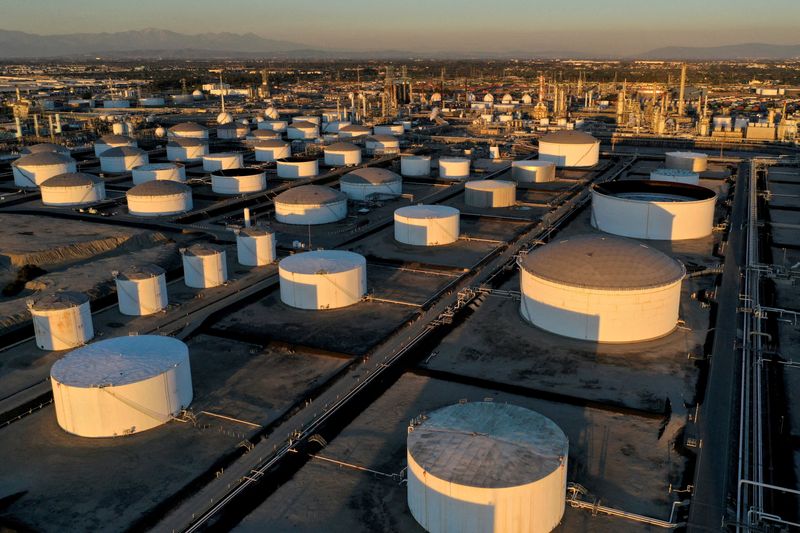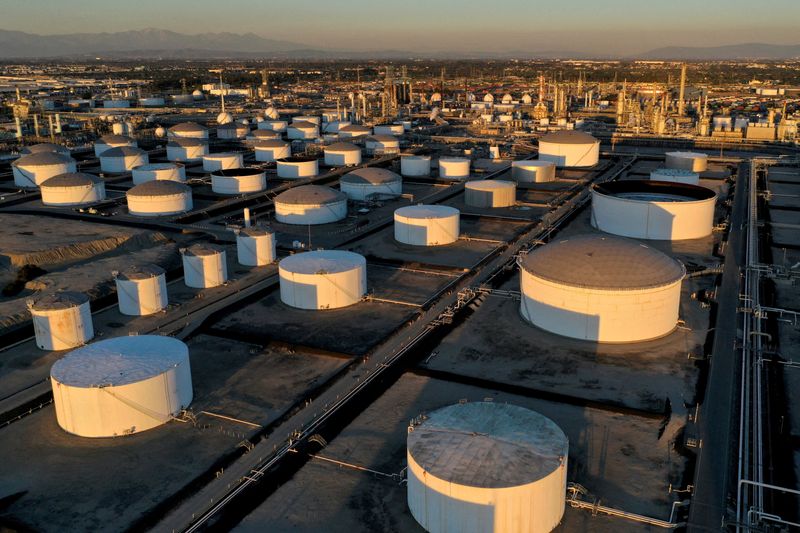
By Shariq Khan
NEW YORK (Reuters) -Oil prices settled more than 3% higher on Monday, with Brent surpassing $80 per barrel for the first time since August as the increased risk of a region-wide Middle East war jolted investors out of record bearish positions amassed last month.
Brent crude futures rose by $2.88, or 3.7%, to settle at $80.93 per barrel. U.S. West Texas Intermediate futures advanced by $2.76, or 3.7%, to $77.14 per barrel.
Last week, Brent rose more than 8% and WTI advanced by more than 9% week-on-week, the most in more than a year, after Iran’s Oct. 1 missile barrage against Israel raised concerns that the response from Israel would aim at Tehran’s oil infrastructure.
If that happens, oil prices could rise by another $3 to $5 per barrel, said Andrew Lipow, president of Lipow Oil Associates.
Rockets fired by Iran-backed Hezbollah hit Israel’s third-largest city, Haifa, early on Monday. Israel, meanwhile, looked poised to expand ground incursions into southern Lebanon on the first anniversary of the Gaza war that has spread conflict across the Middle East.
“There is growing concern that (the) conflict may continue to escalate – not only putting Iran’s 3.4 mmbopd (million barrels of oil per day) of production at risk – but creating further disruptions to regional supply,” analysts at Tudor, Pickering, Holt & Co wrote on Monday.
Monday’s gains were likely driven by money managers closing bearish bets on the rising risk of disruption to Middle Eastern oil supplies, UBS analyst Giovanni Staunovo said.
Hedge funds and money managers had amassed record bearish bets in oil futures through mid-September on a reduced outlook for demand, primarily in China, the biggest importer of crude oil.
“There’s a lot of short-covering in the market that started last week and is still continuing,” said John Kilduff, partner at Again Capital in New York. “It’s a buy now, ask questions later kind of market,” he said.
Still, he warned that the fear-driven rally leaves oil prices open to considerable downside if Israel decides not to attack Iranian oil infrastructure.
That would send oil prices down by between $5 and $7 per barrel, Kilduff and Lipow estimated separately.
“Up until a week ago, I had thought we would be testing low $60s in oil,” said Brent Belote, founder of commodities focused hedge fund Cayler Capital.
Demand remains weak, and the Organization of Petroleum Exporting Countries have enough spare supply capacity to offset any disruptions to Iranian exports, Belote added.

OPEC and allies, including Russia, known collectively as OPEC+, are due to start raising production from December after cutting in recent years to support prices because of weak global demand.
However, Brent crude prices will likely have to be closer to $90 or above for OPEC+ to increase supplies, Lipow said.
This post is originally published on INVESTING.




